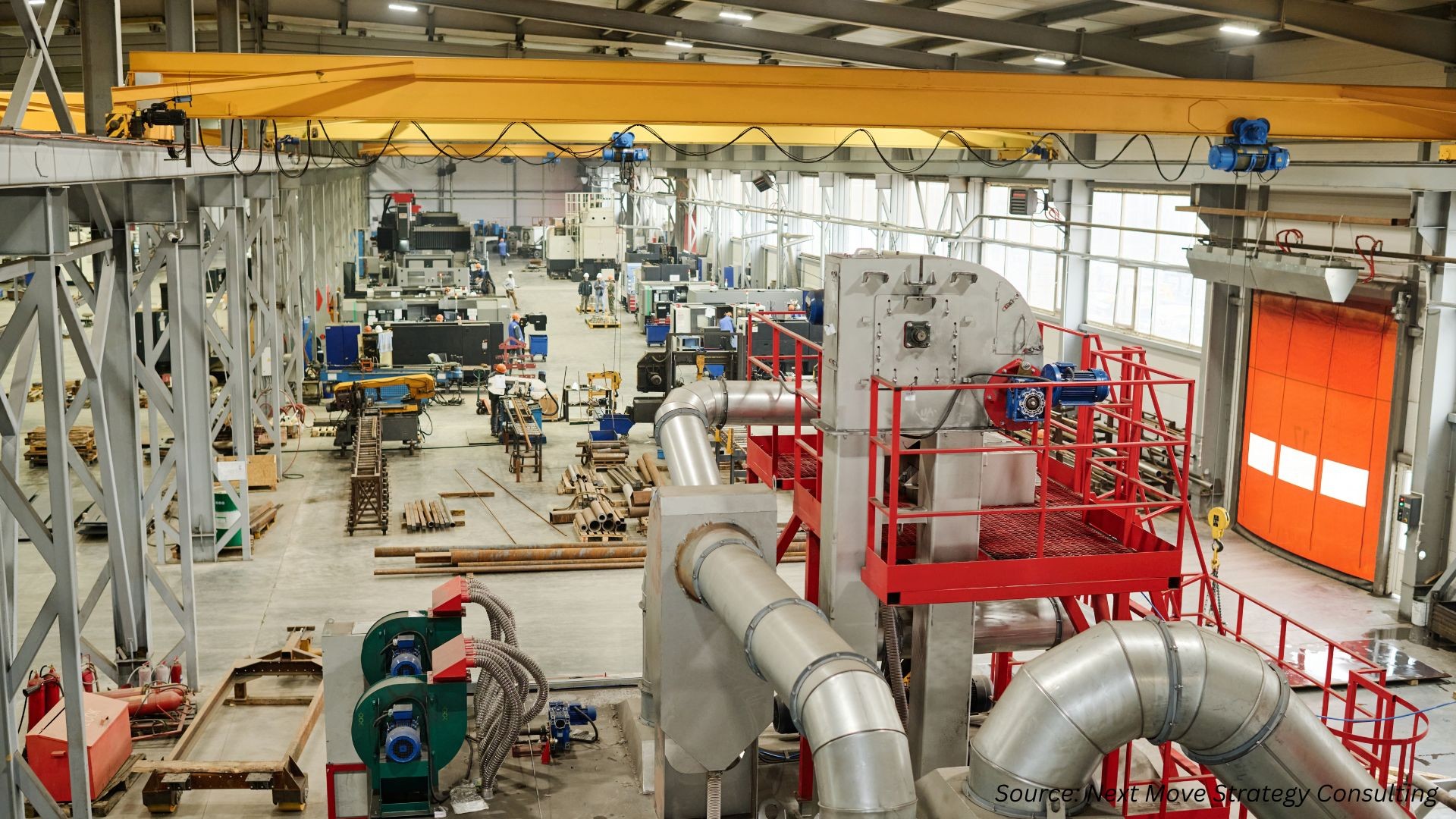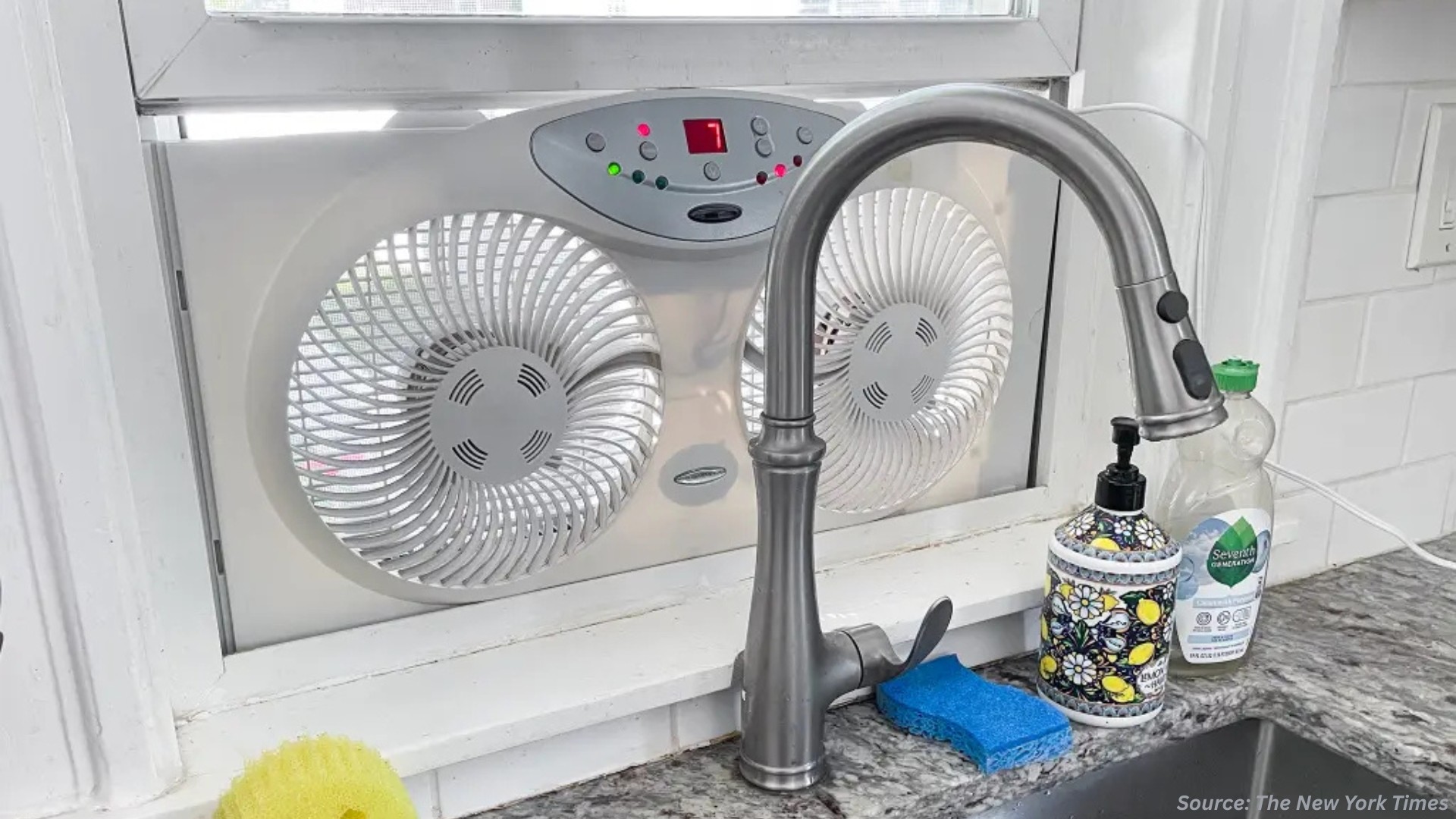France Air Handling Unit (AHU) Market is expected to reach USD 503.0 million by 2030
Published: 2025-09-26
The growing construction activities over the region is driving the demand for the France air handling unit (AHU) market during the forecast period.
France Air Handling Unit (AHU) Market size was valued at USD 355.1 million in 2023, and is predicted to reach USD 503.0 million by 2030, at a CAGR of 4.5% from 2024 to 2030, according to new research by Next Move Strategy Consulting.
The burgeoning construction sector acts as a principal catalyst for the heightened demand within the Air Handling Unit (AHU) market.
As economies progress and urbanize, there emerges a simultaneous need for erecting new residential, commercial, and industrial structures.
HVAC system installation stands imperative in these construction projects, wherein AHUs play a crucial role. Whether in new construction endeavors or the refurbishment of existing facilities to align with contemporary standards, the demand for HVAC solutions propels the AHU market.
This trend extends beyond specific regions but is notably pronounced in areas undergoing rapid urban expansion and infrastructural development.
The expansion of the construction industry directly fosters the increased adoption of AHUs, emphasizing their indispensable role in modern heating, ventilation, and air conditioning infrastructures.
Moreover, the rapid increase in the demand for air handlers within data centers emerges as a major driving force behind market growth.
With the exponential rise in global data storage and processing requirements, driven by the proliferation of cloud computing, artificial intelligence (AI), and big data analytics, data centers have become indispensable assets in modern infrastructure.
These facilities heavily rely on precise environmental management to maintain optimal operational efficiency and prevent equipment overheating, thereby underscoring the critical role of AHUs within their HVAC systems.
Additionally, AHUs are responsible for regulating crucial parameters such as temperature, humidity, and air quality within data centers, ensuring stable operating conditions for servers and networking equipment.
As the expansion of data center infrastructure continues to meet the escalating demands for digital services, the demand for high-performance AHUs tailored to the specific needs of data center environments is witnessing a notable increase.
Consequently, AHU manufacturers are presented with a lucrative opportunity landscape, marked by the growing demand for specialized HVAC solutions within the data center industry.
However, the market faces a significant challenge due to the considerable investment costs and regular maintenance requirements.
Procurement and installation of Air Handling Units (AHUs), particularly for large-scale applications, necessitate a substantial capital investment covering AHU units, ductwork, control systems, labor expenses, and infrastructure modifications.
Moreover, ongoing maintenance activities such as servicing, filter replacements, and preventive measures contribute to an augmented total cost of ownership, placing a financial burden on building owners.
Furthermore, the intricate nature of modern AHU systems exacerbates these financial implications. These financial obstacles may dissuade potential customers, particularly those operating within constrained budgets or considering alternative HVAC solutions.
Consequently, increasing apprehensions regarding high costs among consumers and the availability of alternative HVAC systems act as constraints on market expansion.
On the other hand, Air Handling Units (AHUs) are poised for a significant shift towards greater intelligence and connectivity, driven by the integration of Internet of Things (IoT) technology.
This transition entails the integration of advanced sensors within AHUs to monitor real-time parameters such as temperature, humidity, and air quality.
Coupled with IoT connectivity, these AHUs will be part of a networked system, enabling remote access and control of HVAC functions. Building managers and technicians stand to benefit from the ability to remotely monitor AHU performance, swiftly identifying issues and optimizing system efficiency.
Furthermore, the implementation of data analytics and machine learning algorithms enables predictive maintenance, ensuring timely interventions to prevent potential faults.
The key advantages of this smart and IoT-enabled approach include enhanced energy efficiency, improved system performance, and long-term cost savings.
Overall, this integration of smart technologies positions AHUs as more responsive, efficient, and adaptable components within the evolving landscape of HVAC solutions.
Request for a Sample PDF on the France AHU Market
Several market players operating in the France air handling unit (AHU) market include Carrier Global Corporation, Daikin Industries, Ltd., Systemair AB, Trane Technologies plc, Johnson Controls International plc, Swegon Group AB , FläktGroup Holding GmbH, Aldes S.A., Mitsubishi Electric Corporation, Siemens AG, LG Electronics Inc., Lennox International Inc., Aermec S.p.A., Hoval Group, VTS Group a.s., and others.
Key Insights from the France Air Handling Unit (AHU) Market Report:
-
The information related to key drivers, restraints, and opportunities and their impact on the France air handling unit (AHU) market is provided in the report.
-
The value chain analysis in the market study provides a clear picture of the roles of each stakeholder.
-
The market share of players in the France air handling unit (AHU) market is provided in the report along with their competitive analysis.
















Add Comment